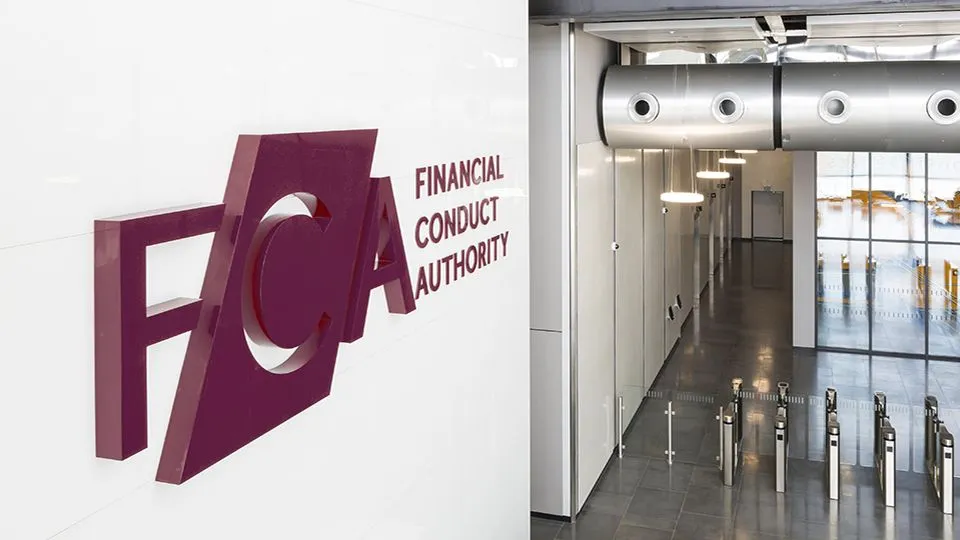Tech
Fintech and Crypto Firms Adjust to FCA’s Strengthened Regulatory Framework

Introduction
London’s fintech and cryptocurrency sectors are entering a new phase of adaptation as the Financial Conduct Authority introduces a strengthened regulatory framework designed to improve transparency, stability, and consumer protection. The reforms, finalized in October 2025, represent the most comprehensive update to the UK’s digital finance oversight since the passage of the Financial Services and Markets Act in 2023. The measures aim to bring clarity to an industry characterized by rapid innovation and frequent volatility. As digital assets and payment technologies become more embedded in the economy, regulators are seeking to ensure that innovation operates within clearly defined and enforceable standards.
Policy Insight
The FCA’s revised framework expands its reach to include digital asset firms, stablecoin issuers, payment service providers, and fintech companies offering tokenized financial products. It introduces enhanced capital requirements, rigorous operational resilience assessments, and clearer segregation rules for client funds. Firms must also strengthen their consumer disclosure practices, ensuring that users understand the risks associated with emerging financial instruments. The new rules are designed to align the UK’s supervisory standards with global benchmarks set by the Financial Stability Board and the Bank for International Settlements.
Governor Andrew Bailey of the Bank of England emphasized that the reforms are not meant to stifle innovation but to reinforce market integrity. The objective is to protect both consumers and investors by preventing systemic vulnerabilities that can arise when technology outpaces regulation. The FCA has made clear that compliance will not be optional and that firms must demonstrate readiness through detailed audits and reporting mechanisms. Regulators believe that by tightening oversight now, the UK can avoid the instability witnessed in other major digital finance markets.
Industry analysts see the changes as an opportunity to strengthen London’s role as a leading financial hub. While compliance costs will rise, the benefits of a more trusted and stable market are expected to outweigh short-term disruptions. Legal clarity and predictable supervision could attract global investment flows from institutional players seeking well-regulated jurisdictions for digital finance activity.
Market Impact
The immediate effect of the new framework has been a shift in corporate behavior across the sector. Data from Innovate Finance shows that nearly seven in ten fintech firms have increased spending on compliance infrastructure since the FCA’s announcement. Smaller startups have expressed concern about the administrative burden, but larger firms view the changes as a step toward long-term credibility. Venture capital investment in UK fintechs reached approximately £5.2 billion in the first three quarters of 2025, a slight decline from last year but still ahead of other European financial centers. Investors are becoming more selective, prioritizing governance and resilience over rapid scaling.
In response to the stricter standards, companies are embracing advanced compliance technology to streamline operations. Artificial intelligence tools are being deployed to automate reporting and detect financial irregularities. Blockchain systems are being redesigned to incorporate auditable transaction trails that meet FCA data retention requirements. The regulator’s technology sandbox program continues to play an essential role, enabling firms to test products under controlled conditions before entering full market operation. Recent pilots have included projects in cross-border payments, digital identity verification, and tokenized asset trading.
City Response
London’s fintech community has responded with a mix of pragmatism and optimism. Industry groups such as UK Finance have welcomed the FCA’s commitment to providing regulatory certainty, arguing that stable rules are essential for global competitiveness. Firms have increased recruitment of compliance officers, legal specialists, and cybersecurity experts to ensure adherence to the updated framework. The city’s major fintech conferences this autumn reflected this shift in focus, with panel discussions emphasizing trust, governance, and technological integrity.
Digital banks and payment processors have already begun implementing internal audits and third-party reviews to evaluate their operational resilience. Crypto exchanges are strengthening governance structures by appointing independent directors to oversee compliance committees. The shift from rapid expansion to sustainable consolidation is becoming evident. Industry leaders note that this adjustment marks a maturing phase for the UK’s digital finance sector, one that places long-term stability above short-term growth.
Universities and research institutes in London are also contributing to the policy transition. Collaborations between academic researchers, regulators, and fintech incubators are producing new frameworks for digital risk management and algorithmic transparency. These partnerships are helping the UK maintain its competitive edge in financial innovation while fostering a culture of accountability and ethics in technology-driven finance.
Innovation and Adaptation
Despite tighter oversight, innovation in London’s fintech scene remains strong. Firms are integrating compliance features directly into product design, reducing the friction between regulation and creativity. Artificial intelligence systems are increasingly used to detect suspicious activities in real time, while tokenization platforms are enhancing payment efficiency without compromising auditability. The convergence of blockchain and traditional finance continues to accelerate, with several major banks now testing distributed ledger systems for instant settlement of interbank transactions.
Discussions within policy circles have also turned toward the long-term role of programmable payment systems and digital settlement assets. Research groups in the City are exploring hybrid models that link public oversight with private-sector innovation. These emerging frameworks are designed to promote secure digital transactions while maintaining the transparency required for financial supervision. The new regulatory environment is fostering experimentation within well-defined boundaries, allowing the UK to remain at the forefront of digital finance without sacrificing prudence.
Policy Outlook
The government and the FCA are expected to continue refining the framework into 2026. Treasury officials have signaled further coordination with the Bank of England to monitor systemic risks in the digital asset ecosystem. Joint task forces will evaluate how emerging financial technologies interact with broader monetary systems and explore how data-driven regulation can enable real-time supervision. These steps reflect a growing consensus that effective oversight requires both human expertise and advanced technological infrastructure.
Industry participants anticipate that the next phase of regulatory evolution will address cross-border interoperability. As more financial services become digitally native, ensuring compatibility with international standards will be vital for maintaining London’s competitiveness. Policymakers are also considering incentives for sustainable fintech investment, encouraging projects that combine technological innovation with environmental responsibility. By embedding ESG principles into financial technology, the UK aims to link its digital strategy with its long-term sustainability goals.
Outlook 2026
The fintech and crypto industries are entering a new era defined by discipline and credibility. Firms that adapt successfully to the FCA’s framework are likely to capture institutional partnerships and investor confidence. Consolidation across the sector is expected as smaller firms seek alliances with established players to share compliance resources. Analysts project moderate but steady growth of about six percent in the UK’s fintech market through 2026, supported by the expansion of secure digital payments and regulated tokenized assets.
London’s global reputation as a financial center remains intact. Its combination of innovation, legal clarity, and international accessibility continues to attract talent and capital. The emphasis on transparency and governance positions the city as a model for sustainable digital finance. While challenges persist, including rising costs and competitive pressures from other hubs, London’s adaptability ensures it remains a leader in shaping the next generation of financial services.
Conclusion
The Financial Conduct Authority’s strengthened regulatory framework marks a decisive turning point for London’s fintech and crypto sectors. The reforms reaffirm the UK’s commitment to responsible innovation, setting clear expectations for accountability and risk management. By integrating technology with regulation, the UK is building a financial system that encourages progress while safeguarding stability. The path ahead demands adjustment, investment, and collaboration, but it also opens opportunities for more resilient growth. London’s ability to merge regulatory strength with creative momentum will define its continued leadership in global digital finance.




















